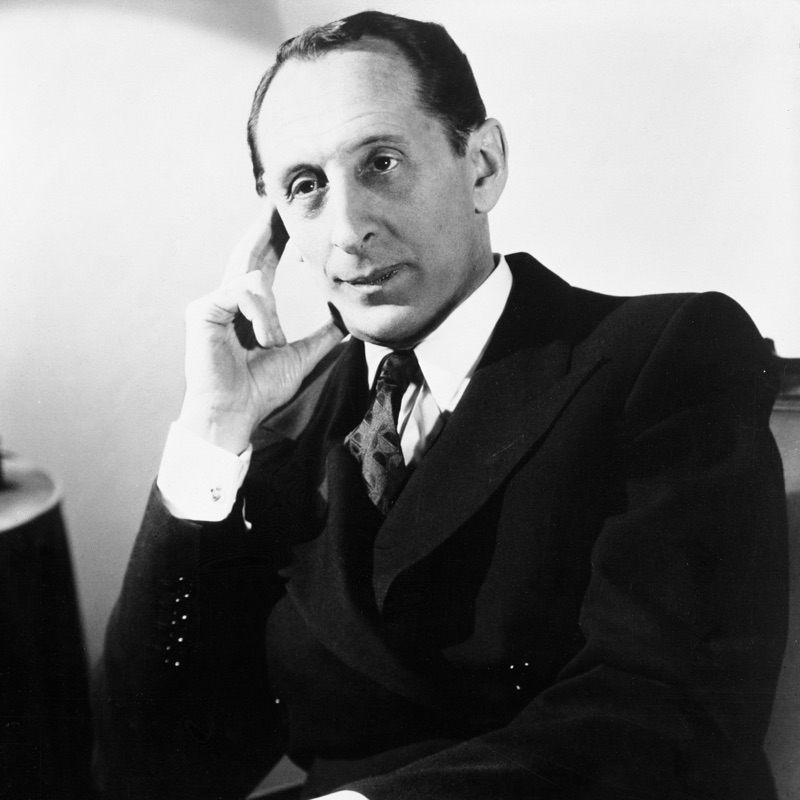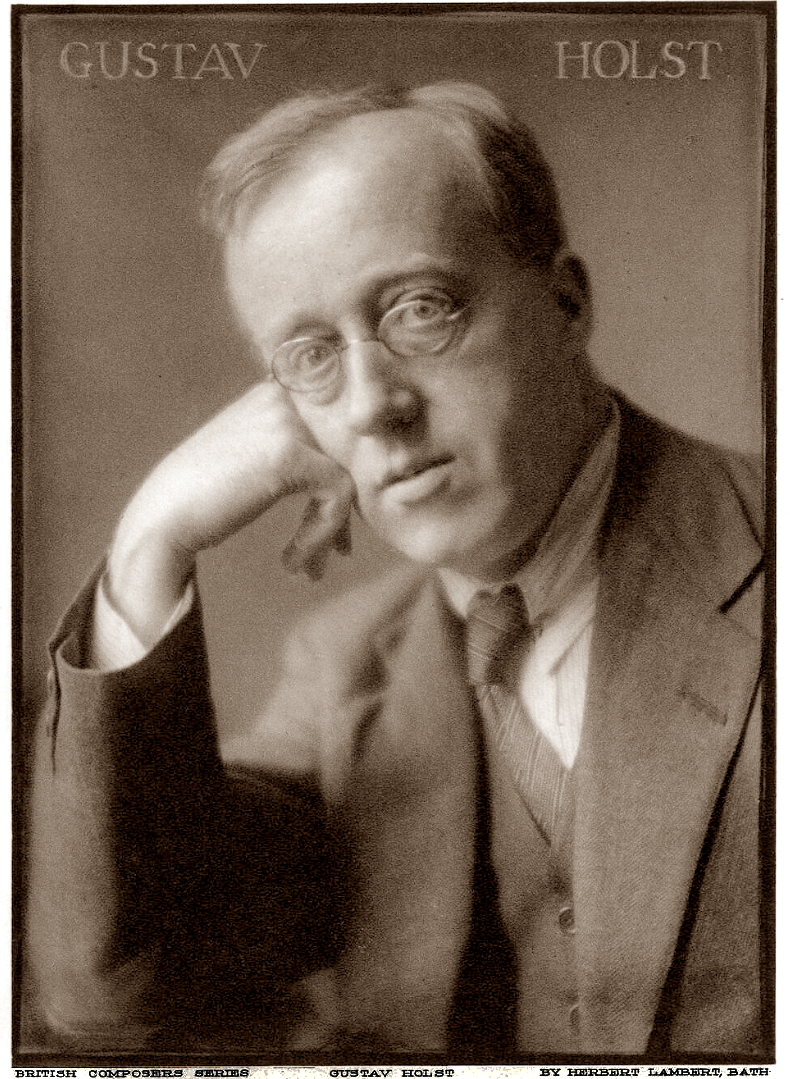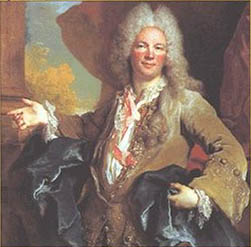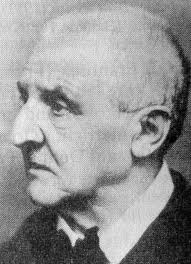Welcome to our free classical music site

Do you write about classical music? Are you a blogger? Want to team up with Classical Connect? Send us a message, let's talk!

Do you write about classical music? Are you a blogger? Want to team up with Classical Connect? Send us a message, let's talk!
This Week in Classical Music: September 27, 2021. Pianists and a Singer. October 1st is a big day for the pianists: Vladimir Horowitz was born on that day in 1903, and Vera Gornostayeva in 1939. Horowitz is world-famous, we’ve written about him on several occasions (for example, here), but still cannot quite come to terms with his art. Somehow, Horowitz managed to combine a sublime touch and bombast, the most incisive interpretation with showmanship, very often in the same recording. There are some pianists, like Arthur Rubinstein, who sound flawless to us, even if during their long careers they had changed the way they played some pieces (which Rubinstein, for one, certainly did). Horowitz is not like that: you listen to him and sometimes cringe: why so fast, why this blur, where’s the music? And the next moment everything is perfect, and you start thinking that maybe the mayhem he created several bars ago had some reason behind it. In any event, here’s Vladimir Horowitz playing Chopin’s Scherzo no. 1. This recording was most likely made in 1951. By the way, Chopin was only 21 when he wrote this Scherzo.
Gornostayeva in 1939. Horowitz is world-famous, we’ve written about him on several occasions (for example, here), but still cannot quite come to terms with his art. Somehow, Horowitz managed to combine a sublime touch and bombast, the most incisive interpretation with showmanship, very often in the same recording. There are some pianists, like Arthur Rubinstein, who sound flawless to us, even if during their long careers they had changed the way they played some pieces (which Rubinstein, for one, certainly did). Horowitz is not like that: you listen to him and sometimes cringe: why so fast, why this blur, where’s the music? And the next moment everything is perfect, and you start thinking that maybe the mayhem he created several bars ago had some reason behind it. In any event, here’s Vladimir Horowitz playing Chopin’s Scherzo no. 1. This recording was most likely made in 1951. By the way, Chopin was only 21 when he wrote this Scherzo.
In the same entry we referred to above, we mentioned Vera Gornostayeva, a fine Russian pianist and teacher. Here she plays, in recital, Chopin’s Waltz in C-Sharp Minor op.64, no.2. It’s very well played, even if there’s no Horowitz’s fire in it. We’re not sure about the date of the recording, it’s probably from the 1970s.
The French composer Paul Dukas was also born on October 1st, in 1865. He’s known for one composition only, his brilliant orchestral piece The Sorcerer's Apprentice. Dukas was born in Paris into a Jewish family. He started composing at the age of 14, went to the Paris Conservatory at 16. To his great disappointment, despite several attempts he failed to win the coveted Prix de Rome. Dukas was very critical of his own compositions and destroyed most of the scores. He was very influential as a music critic; he also extensively wrote about history, philosophy, and politics. Here’s one of Dukas surviving compositions, Variations, Interlude et Finale sur un thème de Rameau. It’s performed by the pianist Marco Rapetti.
Fritz Wunderlich is one of our all-time favorite singers. We just missed his birthday: he was born on September 26th of 1930. As a Lied tenor, he’s incomparable (you can listen to Schubert’s Die schöne Müllerin or Schumann’s Dichterliebe in our library). He was also wonderful in Mozart’s operas. Here’s Il mio tesoro from Act 2 of Mozrt’s Don Giovanni. Herbert von Karajan leads the Vienna Philharmonic orchestra.Permalink
This Week in Classical Music: September 20, 2021. Geography. This week is rich on anniversaries and exceptionally diverse on geography. Gustav Holst was born on September 21st of 1874 in Cheltenham, England. A thoroughly English composer, he got his German-sounding name from his German-Swedish ancestors on the paternal side: his great-grandfather, Matthias Holst, a minor composer, pianist and harpist, was born in Riga and served at the Imperial Russian Court in St. Petersburg. Gustav Holst was quite famous during his lifetime; these days outside of Britain he’s mostly known for his orchestral suite The Planets. Holst studied at the Royal College of Music under Charles Stanford. Another English composer, Ralph Vaughan Williams, was his close friend, and so was Arnold Bax. Holst was a wonderful teacher, among his students were composers Michael Tippett and Benjamin Britten. The Planets were composed between 1914 and 1917. Each of the “planet” movements is supposed to have an astrological meaning, which escapes us, and a certain mood, which can be heard much clearer. Here, for example, is the fourth movement of the suite: Jupiter, the Bringer of Jollity. James Levine conducts the Chicago Symphony Orchestra.
of 1874 in Cheltenham, England. A thoroughly English composer, he got his German-sounding name from his German-Swedish ancestors on the paternal side: his great-grandfather, Matthias Holst, a minor composer, pianist and harpist, was born in Riga and served at the Imperial Russian Court in St. Petersburg. Gustav Holst was quite famous during his lifetime; these days outside of Britain he’s mostly known for his orchestral suite The Planets. Holst studied at the Royal College of Music under Charles Stanford. Another English composer, Ralph Vaughan Williams, was his close friend, and so was Arnold Bax. Holst was a wonderful teacher, among his students were composers Michael Tippett and Benjamin Britten. The Planets were composed between 1914 and 1917. Each of the “planet” movements is supposed to have an astrological meaning, which escapes us, and a certain mood, which can be heard much clearer. Here, for example, is the fourth movement of the suite: Jupiter, the Bringer of Jollity. James Levine conducts the Chicago Symphony Orchestra.
Mikalojus Čiurlionis, a Lithuanian composer, painter and writer, was born on September 22nd of 1875. He’s one of the central cultural figures in modern Lithuanian history. Andrzej Panufnik, one of the most interesting Polish composers of the 20th century, was born on September 24th of 1914 in Warsaw. Here’s what we wrote about him to commemorate his 100th anniversary. Jean-Philippe Rameau, born on September 25th of 1683 in Dijon, was one of the greatest French composers of the Baroque, and probably of all of French music. Here’s the Overture to Rameau’s opera Dardanus, a tragédie en musique, as opera was then called in France. Dardanus premiered at the Paris Opéra on November 19th of 1739. Marc Minkowski leads Les Musiciens du Louvre.
So far we’ve visited England, Lithuania, Poland and France on our list of anniversaries. Three more countries are still ahead. Dmitry Shostakovich was born in imperial Russia, became one of the most famous composers of the Soviet Union and now is venerated as one of Russia’s greatest. Here’s one of our many entries on Shostakovich. Komitas was born in Turkey, in the town of Kütahya, on September 26th of 1869 and died in Paris, France on October 22nd of 1935, but he is an utterly Armenian composer and is celebrated in that country as Čiurlionis is in Lithuania or Shostakovich in Russia. He collected folksongs, as Bartok did in Hungary, and singlehandedly created a Western-style musical tradition in Armenia. And finally, an American: George Gershwin, named Jacob Gershowitz at birth, was born on September 26th of 1898 in Brooklyn, New York.
Seven composers, seven countries. Should we add a Canadian, Glenn Gould, born in Toronto on September 25th of 1932? Maybe next time.Permalink
This Week in Classical Music: September 20, 2021. Geography. This week is rich on anniversaries and exceptionally diverse on geography. Gustav Holst was born on September 21st of 1874 in Cheltenham, England. A thoroughly English composer, he got his German-sounding name from his German-Swedish ancestors on the paternal side: his great-grandfather, Matthias Holst, a minor composer, pianist and harpist, was born in Riga and served at the Imperial Russian Court in St. Petersburg. Gustav Holst was quite famous during his lifetime; these days outside of Britain he’s mostly known for his orchestral suite The Planets. Holst studied at the Royal College of Music under Charles Stanford. Another English composer, Ralph Vaughan Williams, was his close friend, and so was Arnold Bax. Holst was a wonderful teacher, among his students were composers Michael Tippett and Benjamin Britten. The Planets were composed between 1914 and 1917. Each of the “planet” movements is supposed to have an astrological meaning, which escapes us, and a certain mood, which can be heard much clearer. Here, for example, is the fourth movement of the suite: Jupiter, the Bringer of Jollity. James Levine conducts the Chicago Symphony Orchestra.
of 1874 in Cheltenham, England. A thoroughly English composer, he got his German-sounding name from his German-Swedish ancestors on the paternal side: his great-grandfather, Matthias Holst, a minor composer, pianist and harpist, was born in Riga and served at the Imperial Russian Court in St. Petersburg. Gustav Holst was quite famous during his lifetime; these days outside of Britain he’s mostly known for his orchestral suite The Planets. Holst studied at the Royal College of Music under Charles Stanford. Another English composer, Ralph Vaughan Williams, was his close friend, and so was Arnold Bax. Holst was a wonderful teacher, among his students were composers Michael Tippett and Benjamin Britten. The Planets were composed between 1914 and 1917. Each of the “planet” movements is supposed to have an astrological meaning, which escapes us, and a certain mood, which can be heard much clearer. Here, for example, is the fourth movement of the suite: Jupiter, the Bringer of Jollity. James Levine conducts the Chicago Symphony Orchestra.
Mikalojus Čiurlionis, a Lithuanian composer, painter and writer, was born on September 22nd of 1875. He’s one of the central cultural figures in modern Lithuanian history. Andrzej Panufnik, one of the most interesting Polish composers of the 20th century, was born on September 24th of 1914 in Warsaw. Here’s what we wrote about him to commemorate his 100th anniversary. Jean-Philippe Rameau, born on September 25th of 1683 in Dijon, was one of the greatest French composers of the Baroque, and probably of all of French music. Here’s the Overture to Rameau’s opera Dardanus, a tragédie en musique, as opera was then called in France. Dardanus premiered at the Paris Opéra on November 19th of 1739. Marc Minkowski leads Les Musiciens du Louvre.
So far we’ve visited England, Lithuania, Poland and France on our list of anniversaries. Three more countries are still ahead. Dmitry Shostakovich was born in imperial Russia, became one of the most famous composers of the Soviet Union and now is venerated as one of Russia’s greatest. Here’s one of our many entries on Shostakovich. Komitas was born in Turkey, in the town of Kütahya, on September 26th of 1869 and died in Paris, France on October 22nd of 1935, but he is an utterly Armenian composer and is celebrated in that country as Čiurlionis is in Lithuania or Shostakovich in Russia. He collected folksongs, as Bartok did in Hungary, and singlehandedly created a Western-style musical tradition in Armenia. And finally, an American: George Gershwin, named Jacob Gershowitz at birth, was born on September 26th of 1898 in Brooklyn, New York.
Seven composers, seven countries. Should we add a Canadian, Glenn Gould, born in Toronto on September 25th of 1932? Maybe next time.Permalink
This Week in Classical Music: September 13, 2021. The Little-Known Boismortier. Today our guest Aleah Fitzwater writes about the French composer Joseph Bodin de Boismortier. Before we get to this interesting but rather obscure Frenchman, we’d like to mention several composers and singers whose anniversaries are celebrated this week. Girolamo Frescobaldi, one of the first composers to write for a clavier instrument, was born on this day in 1583. Also on this day but in 1819 Clara Wieck was born. We know her better as Clara Schumann, Robert’s wife; she was a wonderful pianist and composer and an influential figure in German musical circles. And Arnold Schoenberg, a great modernist composer who pretty much changed the way we listen to music, was also born on September 13, in 1874. Luigi Cherubini, beloved by Beethoven and Rossini, was born September 14th of 1760. And the three singers, Jessye Norman, Elīna Garanča and Anna Netrebko were born on September 15th of 1945, September 16th of 1976 and September 18th of 1971, respectively. Norman and Netrebko don’t need an introduction (Netrebko will turn 50); Garanča is one of the best mezzos singing today. And now to Aleah and Boismortier:
Before we get to this interesting but rather obscure Frenchman, we’d like to mention several composers and singers whose anniversaries are celebrated this week. Girolamo Frescobaldi, one of the first composers to write for a clavier instrument, was born on this day in 1583. Also on this day but in 1819 Clara Wieck was born. We know her better as Clara Schumann, Robert’s wife; she was a wonderful pianist and composer and an influential figure in German musical circles. And Arnold Schoenberg, a great modernist composer who pretty much changed the way we listen to music, was also born on September 13, in 1874. Luigi Cherubini, beloved by Beethoven and Rossini, was born September 14th of 1760. And the three singers, Jessye Norman, Elīna Garanča and Anna Netrebko were born on September 15th of 1945, September 16th of 1976 and September 18th of 1971, respectively. Norman and Netrebko don’t need an introduction (Netrebko will turn 50); Garanča is one of the best mezzos singing today. And now to Aleah and Boismortier:
Joseph Bodin de Boismortier was born in Lorraine, France in 1689. He was a Baroque-era composer who excelled at the concerto form. According to Wikipedia, he was the first French composer to use the Italian concerto form. In his lifetime, he became famous and was known as “The French Telemann.”
The Rococo Era. Boismortier was a composer in the Rococo Era. Rococo translates as “Shell work.” This artistic era originated in France in the late 17th century, and eventually spread throughout Europe as a reaction against Louis XIV and the bright Baroque styles. The Rococo era is signified by its darker undertones, and emphasis on ornamentation and detail. Both painters and composers were affected by this new artistic movement.
Musical Education. When Boismortier’s family moved to Metz, France, he began to study with a motetist named Montigny. During his studies, he wrote several Airs. Boismortier’s early compositions such as his Airs went over extremely well in Paris. He was highly influenced by Italian forms, which made his music quite unique during this time. As his skills as a composer grew, his pieces became statelier and more beautiful.
Over 100 Pieces in 20 Years. From 1724 to 1747, Boismortier wrote and published over 100 different pieces. These ranged from full ballets to sonatas and concertos. It is also reported that he wrote a flute method book, but that it was lost. Let’s delve into some of his more popular pieces!
Opera-Ballets. Boismortier wrote two Ballets during his lifetime: Les Voyages de L’Amour, and Don Quichotte chez la Duchesse. According to Gramophone.com, Les Voyages de L’Amour tells the tale of Cupid searching for his love. Eventually, he meets a Shepherdess named Daphne. The instrumentation of Les Voyages includes a romantic yet bright combination of hurdy-gurdy, flute, cello and bassoon. The score is full of playful dances and Rigadoons and is certainly a feel-good ballet. https://www.youtube.com/watch?v=SsErw9kRbRQ (continue reading here).Permalink
This Week in Classical Music: September 6, 2021. London Young Musician. One of our goals here at Classical Connect is to support and promote young artists. London Young Musician is an online competition which has similar goals. Even though this week is rich on significant birthdays (from Isabella Leonarda to Hernando De Cabezon, Antonin Dvořák, Henry Purcell, William Boyce and Arvo Pärt), we decided to publish their announcement as London’s deadline is fast approaching. Here it is:
significant birthdays (from Isabella Leonarda to Hernando De Cabezon, Antonin Dvořák, Henry Purcell, William Boyce and Arvo Pärt), we decided to publish their announcement as London’s deadline is fast approaching. Here it is:
London Young Musician is an international online music performance competition focusing on supporting the worldwide learning and creation of classical music. It is open to young musicians under the age of 28 and is available to all classical music instruments and vocals. The competition is held entirely online and welcomes applications from around the world. It provides excellent experience of competing internationally, without the hassle of travelling.
Thousands of candidates from over 70 countries and regions enter the competition. The international jury panel consists of professors from the Royal College of Music and experts from all over the world. It has a unique competition system designed by world-class education specialists, which provides professional pathways and resources for young musicians to build higher musical skills.
The competition seeks talented musicians who have excellent musical skills, a strong personality and fantastic creativity in their video performance.
Seasonal Competitions:
Four separate seasons per year with each seasonal competition being held every three months. All candidates receive an e-certificate and adjudicators’ comments.
For every season, the jury panel awards gold, silver, bronze and special prizes to competitors from each category. Gold Prize winners will have their name displayed in the London Young Musician Hall of Champions and are featured in an official LYM showcase video. Special prizes including Fantastic Technique, Expressive Performance, Characteristic Performance and Stylish Video. These are awarded to the candidate who has shown a unique side of themselves in their video performance. Other exciting prizes are available such as ranking medals, a mid-season online concert invitation, Educator Awards.
Award Points are awarded to all seasonal winners. These points can be used for entering the World Musicians Rankings or for entering the Musician of the Year annual competition in April.
Musician of the Year:
Seasonal winners who have gained 6 award points or more can then enter the annual competition ‘Musician of the Year’. This year-end competition consists of a first round and a Final Round. The final round is live streamed by True Art TV. Apart from jury members’ marks, audience vote helps to determine the final results. The World Musicians Annual Ranking will also be calculated after Musician of the Year results are published. This ranking is calculated based on the total scores of musicians in both seasonal competitions and Musician of the Year in the same competition year.
The annual awards include: cash awards totaling £1000, an interview published in World of New Classical Musicians magazine, a CD making opportunity with the True Art TV label, the opportunity to perform in the mid-season online concert, Champion Trophies, Ranking top 1 medal and exclusive London Young Musician teddy bears.Permalink
This Week in Classical Music: August 30, 2021. Bruckner and more. Anton Bruckner was born on September 4th of 1824 in a small town of Ansfelden near Linz. We love Bruckner, we’ve written about him on a number of occasions, and presented many of his symphonies (take a look here). One symphony that so far was missing from our library is Bruckner’s Symphony no. 2. As so many other compositions, it has a rather torturous history. Even though it is listed as number two, it’s the fourth symphony that Bruckner composed. Bruckner was a late starter: the very first symphony he wrote, in F minor without a number (but sometimes called “Symphony 00,” or “Study Symphony”) was an immature attempt composed in 1863; it was premiered more than a century later, in 1972, and is almost never performed. Then, in 1866, came Symphony no. 1, which Bruckner, famously unsure of himself, rewrote a number of times, and which exists in several versions. But at least this one Bruckner felt was worth performing. Three years later, in 1869, he composed Symphony in D minor. At first, Bruckner called it his symphony number two, but after Otto Dessoff, a prominent composer and conductor with the Vienna Philharmonic, asked him, "But where is the main theme [of the first movement]?” he removed the designation, wrote on the front page that it was nullified and put number zero instead of two. Thus, this symphony is often called “Number 0,” or, in German, “Die Nullte.” By 1872, at the time he composed what we now know as his Symphony no. 2, Bruckner was living in Vienna and teaching at three different institutions: music theory at the Vienna Conservatory, harmony and counterpoint at the University of Vienna and piano at St Anna’s teacher-training college for women. A great organist, he also performed in Austria and other countries, and had little time left for composing. Nonetheless, the Second symphony turned out to be his largest, most ambitious and sophisticated piece up to that point. Bruckner attempted to dedicate the symphony to Franz Liszt, but Liszt rejected the offer (we can only imagine how terribly Bruckner was hurt). He later offered this symphony and the next one, number three, to Brahms, who selected the latter. Thus, Symphony no. 2 isthe only one of Bruckner’s symphonies without a dedication. As always, Bruckner, nervous and unconfident of his gifts, wrote several versions, and had several printed editions. We’ll hear the Symphony in its second major revised version, from 1877, in the so-called Haas edition. The Royal Concertgebouw Orchestra is conducted by Bernard Haitink in this 1969 recording (here).
written about him on a number of occasions, and presented many of his symphonies (take a look here). One symphony that so far was missing from our library is Bruckner’s Symphony no. 2. As so many other compositions, it has a rather torturous history. Even though it is listed as number two, it’s the fourth symphony that Bruckner composed. Bruckner was a late starter: the very first symphony he wrote, in F minor without a number (but sometimes called “Symphony 00,” or “Study Symphony”) was an immature attempt composed in 1863; it was premiered more than a century later, in 1972, and is almost never performed. Then, in 1866, came Symphony no. 1, which Bruckner, famously unsure of himself, rewrote a number of times, and which exists in several versions. But at least this one Bruckner felt was worth performing. Three years later, in 1869, he composed Symphony in D minor. At first, Bruckner called it his symphony number two, but after Otto Dessoff, a prominent composer and conductor with the Vienna Philharmonic, asked him, "But where is the main theme [of the first movement]?” he removed the designation, wrote on the front page that it was nullified and put number zero instead of two. Thus, this symphony is often called “Number 0,” or, in German, “Die Nullte.” By 1872, at the time he composed what we now know as his Symphony no. 2, Bruckner was living in Vienna and teaching at three different institutions: music theory at the Vienna Conservatory, harmony and counterpoint at the University of Vienna and piano at St Anna’s teacher-training college for women. A great organist, he also performed in Austria and other countries, and had little time left for composing. Nonetheless, the Second symphony turned out to be his largest, most ambitious and sophisticated piece up to that point. Bruckner attempted to dedicate the symphony to Franz Liszt, but Liszt rejected the offer (we can only imagine how terribly Bruckner was hurt). He later offered this symphony and the next one, number three, to Brahms, who selected the latter. Thus, Symphony no. 2 isthe only one of Bruckner’s symphonies without a dedication. As always, Bruckner, nervous and unconfident of his gifts, wrote several versions, and had several printed editions. We’ll hear the Symphony in its second major revised version, from 1877, in the so-called Haas edition. The Royal Concertgebouw Orchestra is conducted by Bernard Haitink in this 1969 recording (here).
Bruckner was not the only composer born this week. Darius Milhaud, the French composer and one of Les Six, was born on September 4th of 1892. And on September 5th we have four more birthdays: Johann Christian Bach, the youngest of Johann Sebastian’s eleven sons, known as “the London Bach,” the Jewish-German composer Giacomo Meyerbeer, born in 1791, who was probably the most popular opera composer of the 19th century, John Cage, one of the most prominent avant-garde American composers, in 1912, and Amy Marcy Cheney Beach, now more popular than ever, in1867.
We’d also like to mention three conductors, all born on September 1st: the great opera conductor Tullio Serafin in 1878, Seiji Ozawa in 1935 and Leonard Slatkin in 1944.Permalink